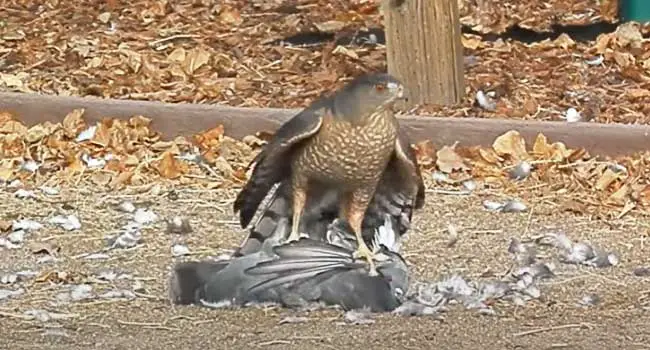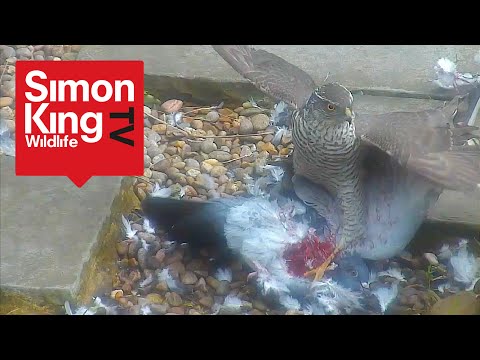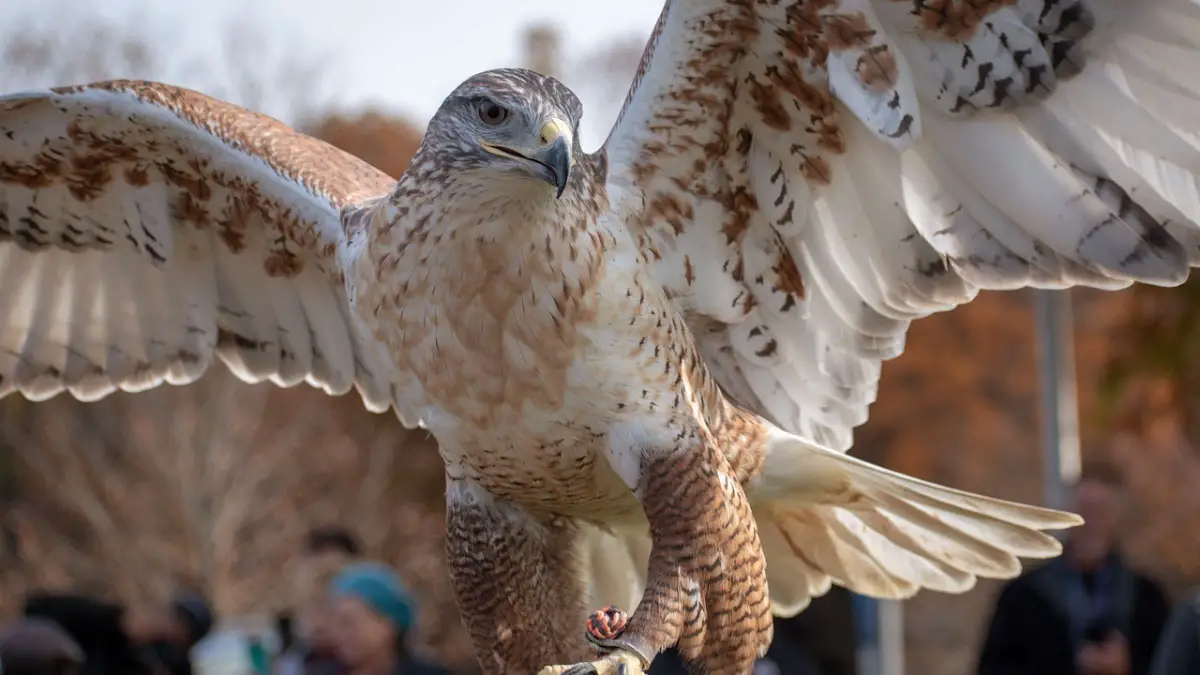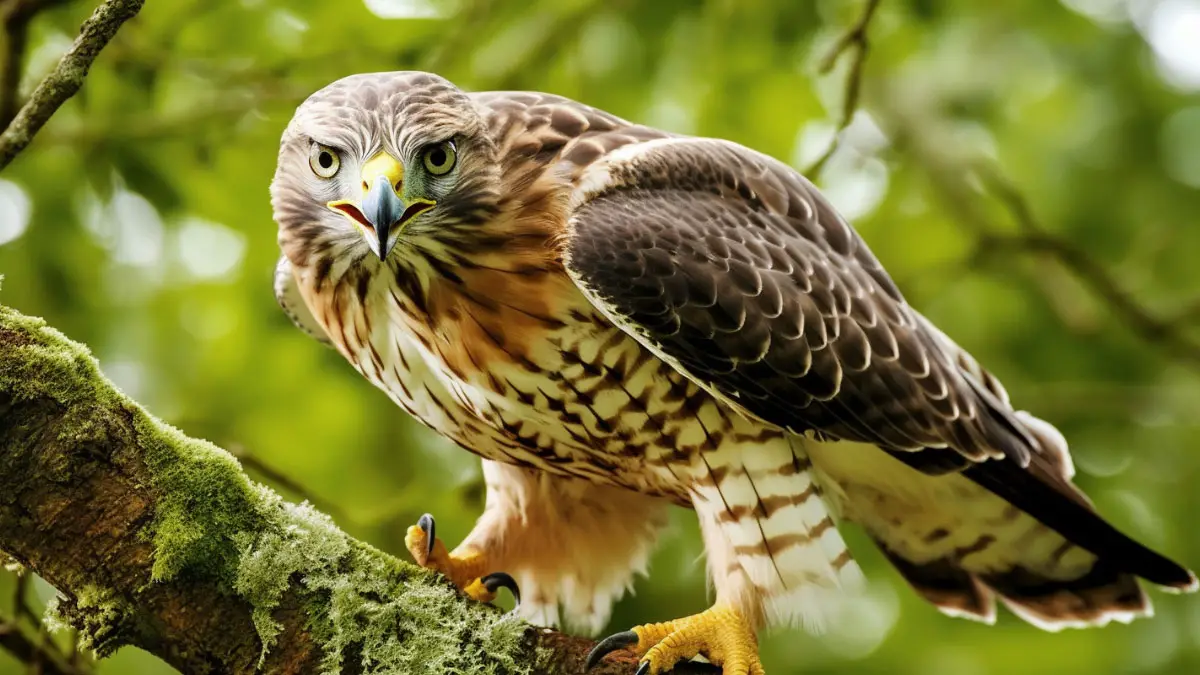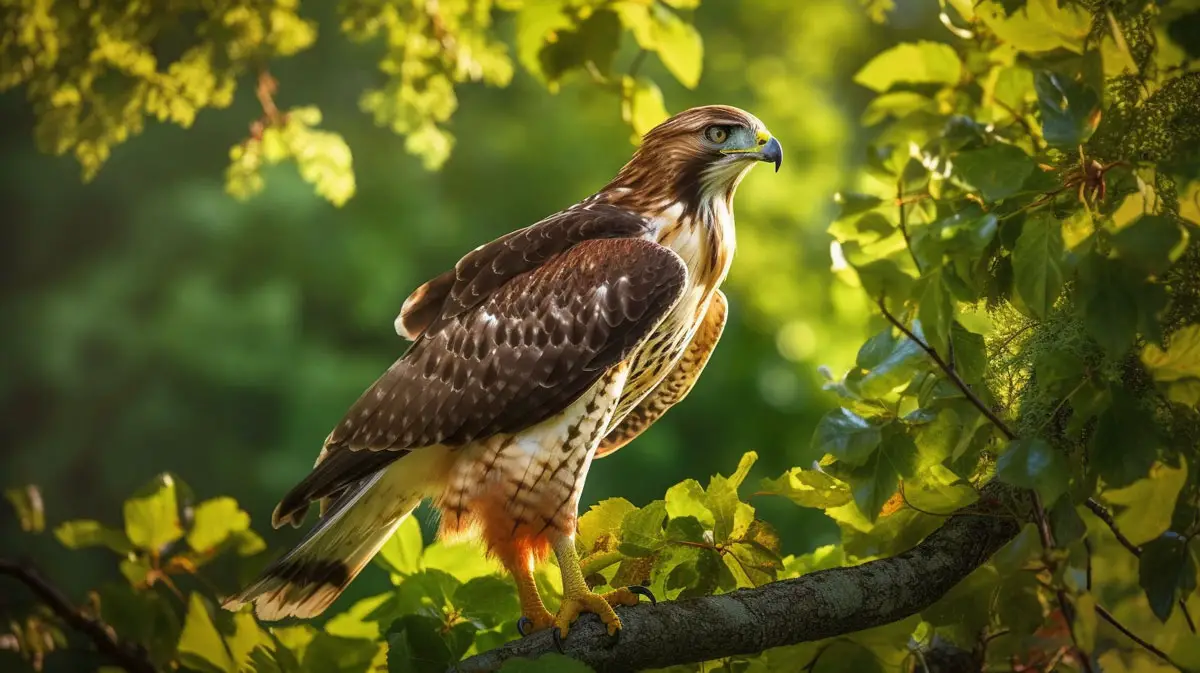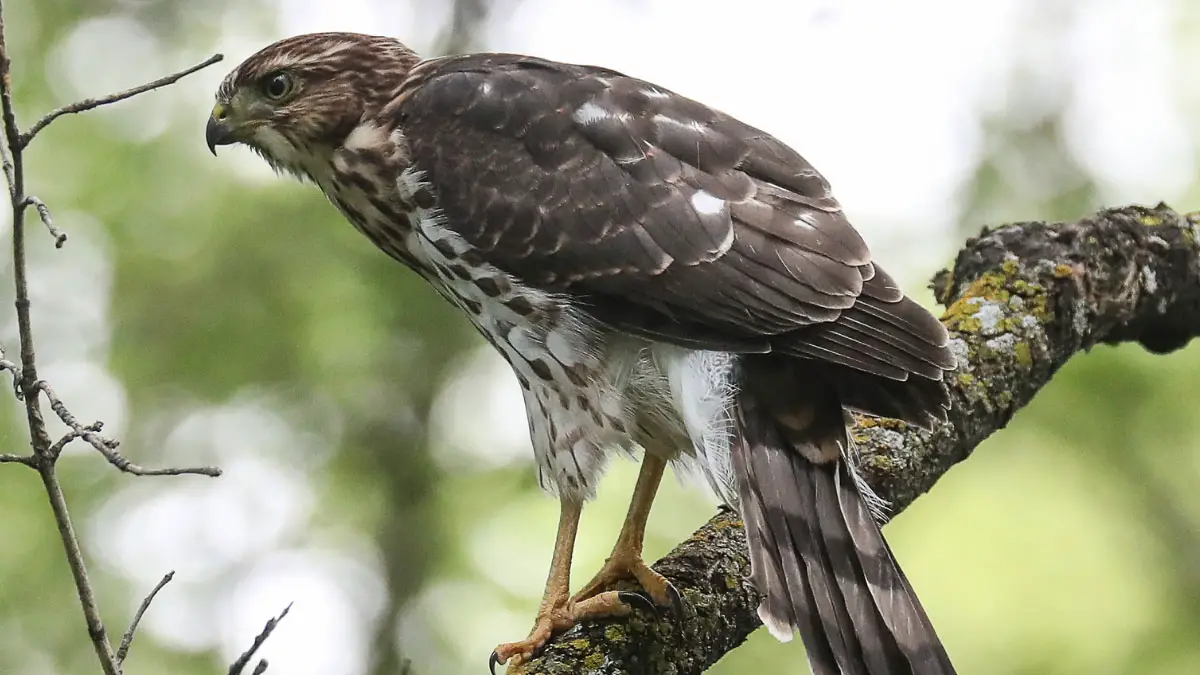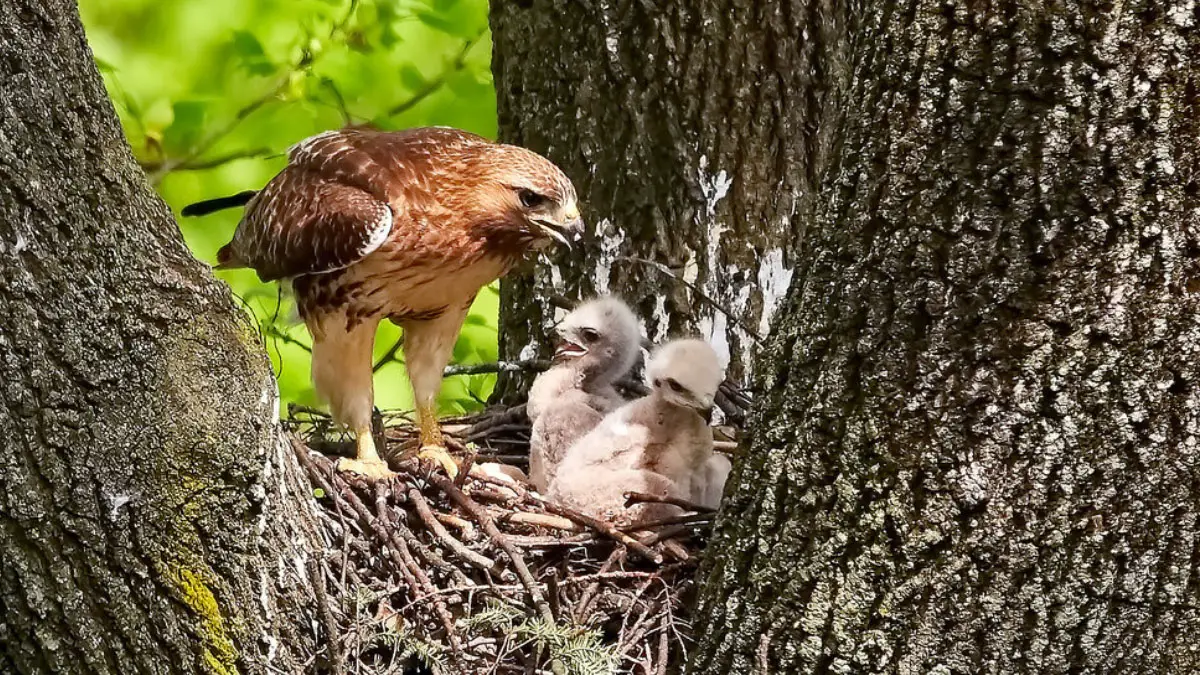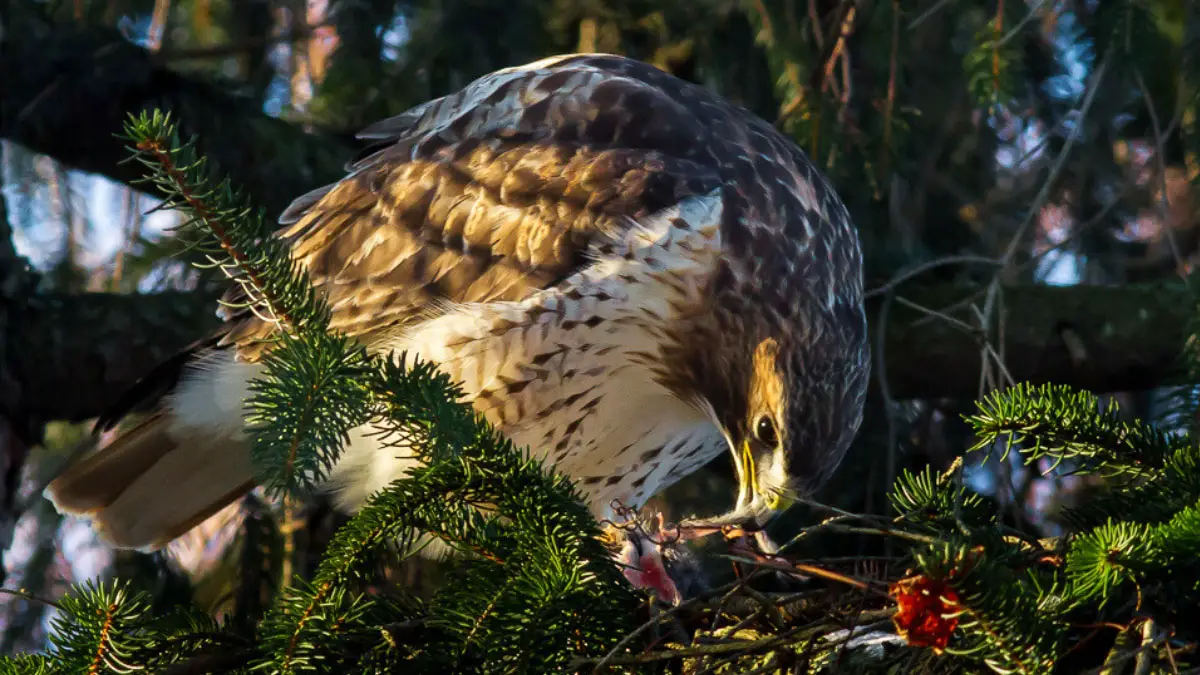Are you a pigeon lover and planning to keep some at home? Perhaps you would like to keep them as pets for purposes such as breeding or racing. However, you are worried about hawks eating your pigeons when you let them loose. Your concerns are normal.
But do hawks really eat pigeons? Yes, hawks can feed on whole pigeons as soon as the opportunity comes up. Some hawks prefer eating the pigeons alive on the spot. However, others will kill and then carry the feeders to their nest if there is another predator nearby.
So, how do hawks kill pigeons, you ask? Read on to find out this and much more, including which hawks eat these feeder birds.
Do Hawks Eat Pigeons?
The answer is yes. Hawks are natural predators of birds, and pigeons, also known as backyard birds, are one of their many preys. Interestingly, hawks will eat the whole pigeon, including the meat, bones, and feathers. They can choose to eat them alive either on the spot or carry them to their nest tree.
So, what then makes hawks eat pigeons? First, these birds are abundant and easily accessible, especially in cities. Also, you will notice that pigeons are considerably slower and are not aggressive birds, making them easy prey.
Overall, you will find that a hawk may eat up to 8 medium-sized birds in a day. However, this largely depends on the size of the hawk and how hungry it is. For instance, the ferruginous hawk, the world’s largest bird, can feed on a single rock pigeon and remain full for several days.
But if the pigeons are small-sized birds, probably the size of a sparrow, the same hawk will need to eat more bird feeders. On the other hand, small hawks like the Cooper Hawk can survive on one large pigeon per day.
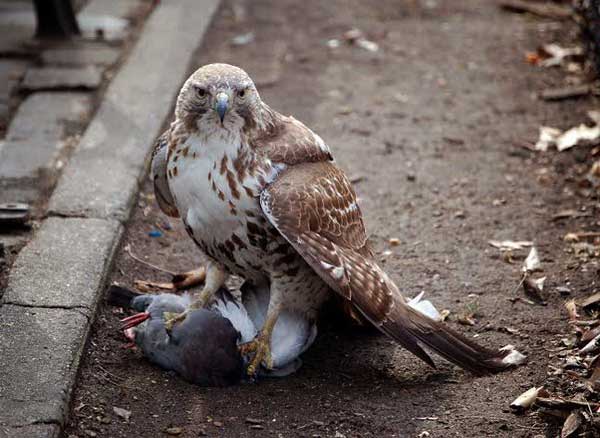
How Do Hawks Kill Pigeons?
There are many methods that hawks can use to kill pigeons and other prey. Read on to find out which they are.
Using talons or claws
One of the common ways a hawk can kill backyard bird feeders is using its sharp talons, also known as claws. You see, these predatory birds have four strategically-placed talons.
Three of them are front-facing, and one is backward-facing. So, any aggressive hawk will use its sharp claws to pierce through the skin of the pigeon, thereby killing it.
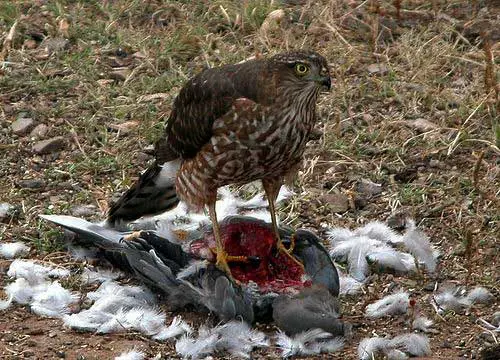
Biting using their sharp beaks
Besides their sharp talons, these predators also boast sharp beaks. In most cases, you will find that the hawk will combine its sharp talons and beak to kill the pigeon.
Choking using its strong feet
Hawk’s feet have some tendons designed to easily lock into place. So, once a hawk catches a pigeon, it will use its feet to firmly hold the bird.
And because of the firmness of the grip, the pigeon eventually dies from lack of airflow.
Breaking the neck of the pigeon
A hawk may also kill a pigeon by breaking off its neck. It does this by wrapping its feet around the neck of pigeons and squeezing it. This causes the neck to immediately break off, killing the bird.
Which Hawks Eat Pigeons?
While hawks can eat pigeons, some specific species of hawks are known to hunt pigeons more than others. These include:
Sparrowhawks
Typically, sparrowhawks kill pigeons by squeezing them under their feet and stabbing them with their claws. However, female sparrowhawks are known to prey on pigeons more than their male counterparts because of their big size.
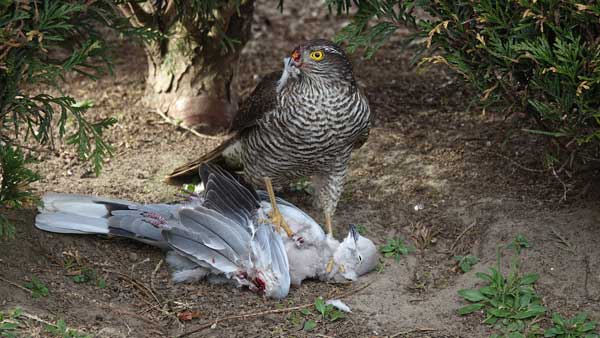
Goshawks
Common in North America, this is yet another skilled hunter of pigeons. It has a hooked beak that it uses with its sharp talons to catch its prey. These predatory birds also use their broad wings to catch pigeons in flight.
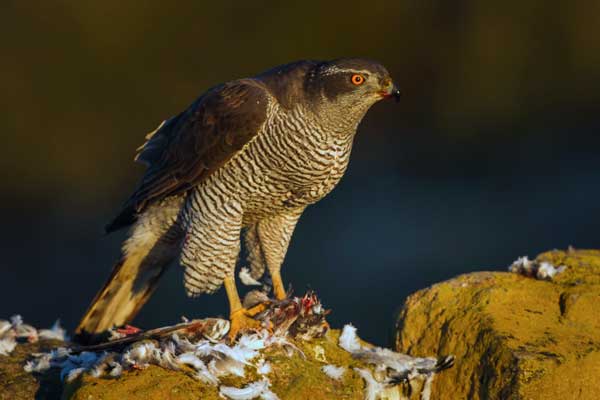
Cooper’s hawk
Male cooper hawks are small-sized birds and rarely prey on pigeons. However, their female counterparts are quite bulky, and you will often find them hunting for pigeons in city parks. A cooper’s hawk usually kills the pigeons using its feet by repeatedly squeezing them.
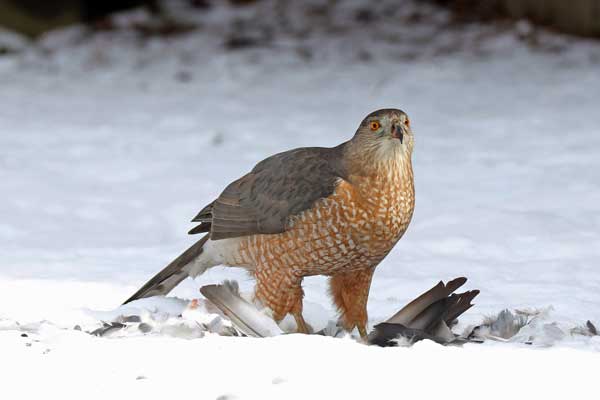
Red-tailed hawk
Although you are less likely to see red-tailed hawks in your backyard, they do eat pigeons. These hawks have large claws, which they use to grasp and then kill their prey.
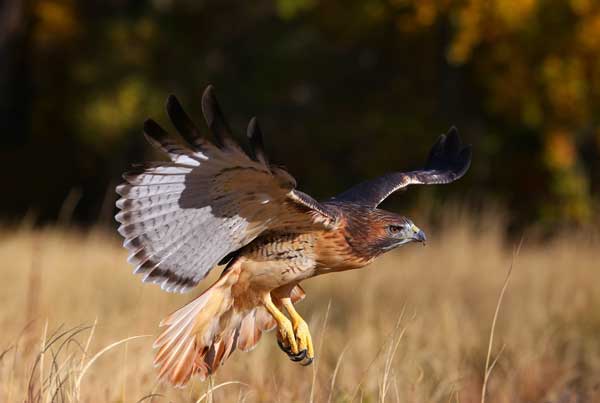
Harrier hawks
These hawks tend to fly very low in search of prey. However, pigeons are not a primary food for the harrier hawks. But if the opportunity presents itself, they won’t let it pass.
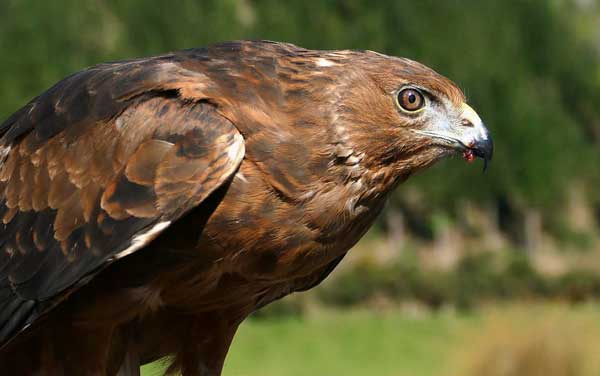
Humane tips to Prevent Hawk Attacks on Pigeons
If you keep pigeons or love watching them when they visit your backyard, you might want to protect them from hawk attacks. Below are tips on keeping your pigeons safe without causing any harm to the hawks.
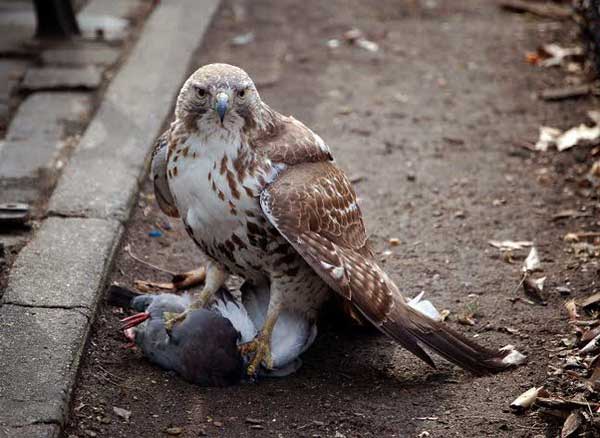
Keep the pigeons dispersed
Having the pigeons in a concentrated area out in the open only puts them at a higher risk of being attacked. So, spread them out to make it hard for hawks to catch your feeders.
Use deterrents
You can also use reflective deterrents like hanging CDs on trees or reflective tape. Hawk balls or mirror balls are another effective deterrents for scaring away a sharp-shinned hawk.
Fly the birds at different times
If you’re always flying your pigeons at the same time of the day, the hawks will figure out the routine. So, you should try to let your pigeons loose at different times of the day.
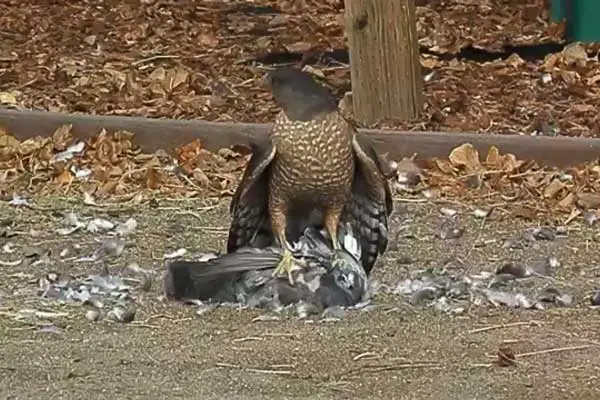
Attract some crows
Crows don’t like hawks. Therefore, you can use them to keep hawks away. You just need to feed the crows, which will attract them to your garden.
Shield your pigeons
One way to shield your pigeons is to get rid of hawk vantage points by cutting down standalone trees. You should also remove leafless branches because hawks will perch there waiting for your pigeons.
FAQs
In this section, you can find answers to some of the most frequently asked questions about hawks preying on pigeons.
Besides the peregrine falcon, other birds of prey that frequently hunt pigeons are sparrowhawks and cooper’s hawks. The sparrowhawks will even kill racing pigeons.
It depends on the size of the hawk and pigeon. Some hawks can eat up to eight small pigeons a day. However, other species of hawks like the Ferruginous can survive only one mature rock pigeon for a couple of days.
Yes. Although pigeons are very smart birds of prey, they are generally scared of their predators, including owls and pigeons. However, they are not afraid of humans, which explains why they are more concentrated in urban settings.
Conclusion
While hawks do eat pigeons, they are not their diet staple. This is because pigeons are good at swerving and flying in patterns to evade predators like hawks. Therefore, most hawks will only eat pigeons if the opportunity comes up.
And once a hawk catches a pigeon, it can choose to kill it using its sharp talons, beak, or strong feet. Some hawks also kill by breaking off the neck of the feeder or by choking. We are talking about species of hawks such as Cooper’s hawk, sparrowhawks, goshawks, and harrier hawks.
Do you want to know if hawks eat frogs or eagles? Read our articles about it to learn more.
